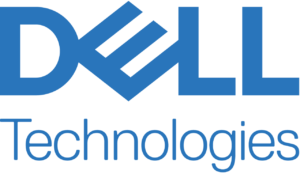Harnessing the power of data with emerging technologies

The “data deluge” thrives with an explosion of data that continues to be created as more and more organisations accelerate their digital transformation. The challenge faced is how to create value from this digital gold, writes John O’Donoghue, Emerging Technologies Consultant, and Ryan Heynes, Healthcare Leader, Dell Technologies Ireland.
Today, many organisations are beginning to adopt artificial intelligence (AI) tools to provide interesting insights into their data, with the goal of developing new products and services, solving problems faster, and attracting new customers.
Organisations must consider the layers of complexity which come with the adoption of AI including data management, ethical bias and, of course, security. Not to mention overcoming the resistance of staff to utilise where there are concerns that the AI solution may reduce staff numbers in the future.
Operational and ethical issues aside, Dell Technologies continues to develop AI reference architectures that make it easy to deploy and consume in a safe and secure manner, allowing organisations to spend less time on the technology and more time on the outcomes; time that can be spent supporting staff to understand how AI can support and enhance their roles, replacing repetitive tasks that take valuable time away from their core duties thereby opening up new working opportunities.
“Ireland continues to have a shortage of skills in AI,” says John O’Donoghue, Emerging Technology lead for Dell Technologies, “and it’s vital that we continue to develop skills and prepare students for future work environments.” A collaboration between Dell Technologies and Munster Technological University has been underway for some time, to develop a system to train the next generation of data scientists as part of the universities master’s degree in AI.
However, this shortage in skills is not limited to Ireland, and governments across the globe need to look deeper into how they develop new talent in the field of AI in order to support greater adoption of this technology into public services. AI has the potential to drive more efficiency and better-quality public services, but adopting the technology involves a cultural shift in how we think about data.
A critical need for Ireland is to appoint a Minister for Data, whose responsibility would span how citizens data can be securely managed across departments to deliver better quality services for everyone. There are many legitimate concerns being raised about the inappropriate use of data by governmental bodies. Safeguarding the data and its use is paramount in providing assurance to citizens that their data will not be accessed without their consent or used for any purpose other than that which it was originally collected for.
Healthcare services are a prime example of how data can be misused, albeit in the patient’s best interest in most cases. There has been a lot of scrutiny about the use of patient data over the years, but with the emergence of the Covid 19 pandemic, we have seen a mind shift in how data can and should be used to support improvements in patient care.
Utilising emerging technologies has enabled governments to move from reacting to events, to proactively preparing for or avoiding them completely. Public departments are now starting to collaborate to create new improved services and experiences for citizens. Healthcare services are working across all public service departments to create a holistic view of care provision, moving from the sickness model of treating an illness to a wellness model where they are proactively avoiding it in the first place.
Beyond data being created within healthcare providers, people are now creating their own healthcare data through the growth in wearable lifestyle devices such as fitness watches. Users have the option to share this data as part of their wider patient data profile, which can give additional context to the overall picture of their health and lifestyle.
The potential to utilise this data to improve the patient experience and improve the general health of all citizen needs to be a priority of governments globally. With the development of new medical devices, wearables and environmental data streams, which are collecting data in real-time, our core focus needs to be on driving data and messaging standards to ensure we can use this data effectively.
Ryan Heynes, Healthcare lead for Dell Technologies says: “AI is rapidly becoming a critical tool in healthcare across a number of areas. We see AI used in decision support, to help make faster and more accurate diagnosis of diseases. It’s used widely in planning and logistics to optimise pathways of care and treatment, and of course it’s being used to speed up genomic sequencing, driving down the cost and time of personalised treatment.”
Dell Technologies are currently developing an artificial intelligence Digital Health Twin, in collaboration with the University of Limerick Cancer Network (ULCaN) and the HSE, which has been established as part of the network of Living Labs. The use of AI will enable a new profiling of cancer tissue using digital pathology, advanced AI and machine learning to create a digital twin to determine how patients will respond to treatment and the best pathway of care.
The digital twin is a developing simulated environment of a physical object/being to test potential scenarios. To create a digital twin to evaluate cancer treatments, multiple data sources are required, starting with digital pathology images and then merging this data with medical record information, genomic data and other environmental sources which use AI to paint a complete picture. With the advanced analysis of this data, researchers and data scientists can then develop predictive models of how patients will respond to cancer treatment and develop a personalised treatment plan with the goal of better patient outcomes and improved utilisation of public services.
The collaboration across industry, research and government bodies was key to the development of this project, drawing skills from across several domains. ULCaN has established a team of researchers across multiple disciplines and leveraged the skills of Dell Technologies and the HSE to enable the program.
Governments and organisations across all industries must prepare for a future where machine learning, deep learning and high-performance data analytics are commonplace to stay competitive. Harnessing the power of AI with high performance computing is closer than you think and within reach for organisations that are ready to take the next step forward on their digital transformation journey.
John O’Donoghue
Emerging Technologies Consultant
Dell Technologies Ireland
j_odonoghue@dell.com
Ryan Heynes
Healthcare Leader
Dell Technologies Ireland
Ryan_Heynes@dell.com






